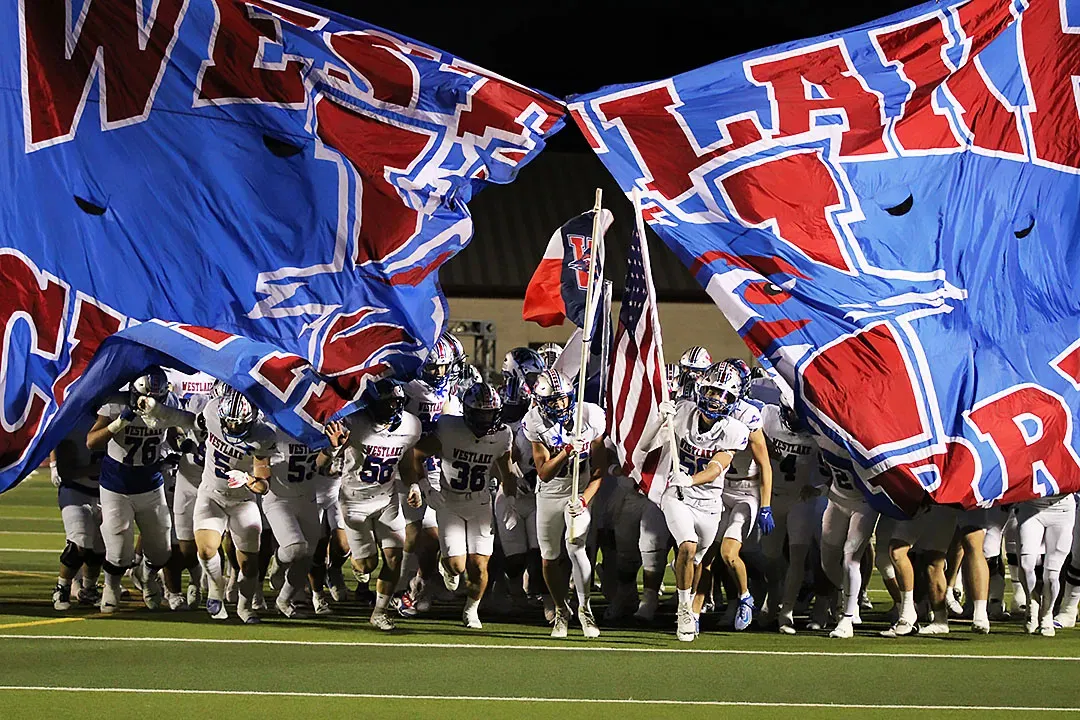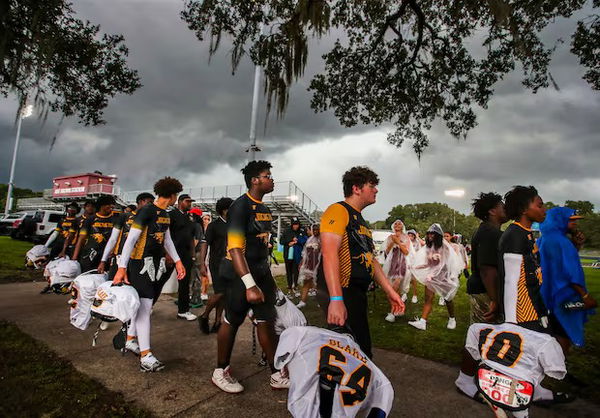

In Texas, where football is practically a religion and high school rivalries draw crowds like Friday night sermons, a new bill might change the game—literally. House Bill 619, if passed, promises to stir up the Lone Star State’s sports scene, offering student-athletes unprecedented freedom to transfer schools. And while some call it a long-overdue reform, others see it as a Pandora’s box of potential chaos, the One-Time Transfer Rule.
Watch What’s Trending Now!
Right now, Texas high school athletes are locked into strict UIL (University Interscholastic League) regulations. Transferring schools for better coaching or competition can lead to penalties if deemed to be for “athletic purposes.” But under this proposed legislation, of the ‘One-Time Transfer Rule,’ athletes would have a one-time pass to switch districts—no questions asked. For many, it’s the chance to rewrite their sports narrative without fear of bureaucracy slamming the door.
ADVERTISEMENT
How could a one-time transfer rule change the game?
The premise is simple: starting in the 2025-26 school year, high schoolers under 19 can transfer schools once per year, beginning September 1st, 2025. These athletes would get a One-Time Transfer Rule free of UIL penalties. Proposed by State Rep. Barbara Gervin Hawkins, this bill seeks to level the playing field for athletes trapped in underperforming programs or districts lacking resources. It’s a lifeline for talent stuck in neutral, offering them a shot to shine under brighter lights.
Take a young football player in a rural Texas district with limited exposure. This bill could catapult them into a powerhouse program where scouts frequent the sidelines. Schools won’t be able to deny a transfer based on sex, race, national origin, language, or disability. “This isn’t just about football,” supporters argue. “It’s about giving kids a fair shot at fulfilling their potential.” And for families juggling dreams of college scholarships, this bill could be a game-changer.
Top Stories
Cowboys Fire Defensive Coordinator Matt Eberflus: Contract, Salary, NFL Earnings & More

Russell Wilson Announces Retirement Stance as Giants QB Shares Hidden Injury News

Huge Fire Destroys Over 125-Year-Old Golf Club Designed by 5x Open Winner in London – Report

Marina Mabrey Is Raising Eyebrows Again With Fiery Unrivaled Confrontation

Dolphins Reportedly Indecisive About Mike McDaniel as GM Search Kicks Off

Joe Flacco Makes Retirement Decision Clear as Bengals QB’s Final Gesture for Ja’Marr Chase Draws Attention

ADVERTISEMENT

ADVERTISEMENT
However, it’s not an open-door policy for endless transfers. Once a student uses their transfer, they’re locked into the new school until graduation, barring full withdrawal. The goal is to prevent a Wild West of athletes bouncing from school to school chasing championships. Rep. Hawkins emphasized this balance, stating, “We want to empower families while keeping the integrity of the game intact.” Still, the bill’s potential to alter Texas high school sports culture cannot be overstated.
Critics, however, raise a valid concern: powerhouse schools might become even more dominant. Imagine a perennial football giant, Duncanville, suddenly reeling in top-tier players from surrounding districts.
ADVERTISEMENT
A Texas high school football tradition reimagined, not lost
Texas high school football has always been about community, tradition, and pride. Some worry this bill could dilute those roots, but there’s another side to that coin. What if it becomes an extension of the tradition, pushing athletes to seek out better coaching and stronger competition while still representing their adopted communities? For programs like Allen or Katy, which already function as pipelines to college football, this could solidify their place as the state’s ultimate proving grounds.
The impact extends beyond individual schools. The recruiting dynamics would undoubtedly shift. College coaches who once scoured hundreds of small programs might focus more on a handful of powerhouses where talent consolidates. Critics argue this could create a “super-league” of high school teams, but others see it as a natural evolution of the sport.
The balance of competition could shift dramatically, leaving smaller programs struggling to stay afloat. As much as this bill empowers athletes, it could widen the gap between the haves and the have-nots in Texas sports. What is your take? Is this a win for student-athletes or a potential headache for coaches and teams?
ADVERTISEMENT
ADVERTISEMENT
ADVERTISEMENT
ADVERTISEMENT

